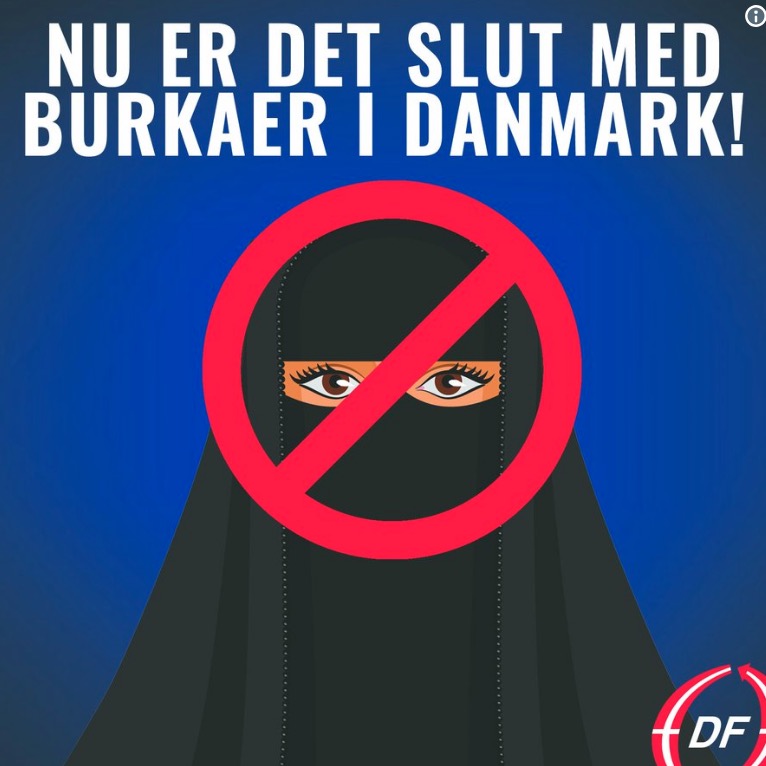Denmark has become the latest European nation to enforce a blanket ban on the traditional Islamic headdress. In a 75-30 vote with 74 absentees, Danish lawmakers passed the law presented by the center-right governing coalition to outlaw Islamic veils such as the niqab or burqa.
In terms of the enforcement of the new law, Justice Minister Soeren Pape Poulsen said it will be up to police to use their “common sense” in order to decide when people are violating the rule, which is due to come into force August 1. The law allows people to cover their faces when there is a “recognizable purpose,” such as in cold weather. Fines for the breaking the new regulation will result in fines; initially about $150 but increasing to well over $1,000. Repeat offenders can face a prison sentence of up to six months.
If anyone is found to be forcing people to wear their garments, they can be punished with up to two years in prison.
Austria, France and Belgium currently enforce similar laws.
Various human rights organizations, such as Amnesty International, have lambasted the Danish government for what they believe to be unnecessary censorship over women’s clothing.
“All women should be free to dress as they please and to wear clothing that expresses their identity or beliefs,” said Gauri van Gulik, Amnesty International’s Europe director, as reported by the Guardian. “This ban will have a particularly negative impact on Muslim women who choose to wear the niqab or burqa.”
Veils have been a subject of controversy in Denmark for a number of years. Danish Prime Minister Lars Løkke Rasmussen said in 2010 that “the burqa and the niqab do not have their place in the Danish society. They symbolize a conception of the woman and of the humanity to which we are fundamentally opposed and that we want to fight in the Danish society,” according to the Library of Congress.
The Danish People’s Party tweeted “finally adopted!” with a provocative image of a veiled woman with a “no symbol” across her face.
BURKAFORBUDDET ER ENDELIG VEDTAGET! #dkpol pic.twitter.com/9wVaD3ezLE
— Dansk Folkeparti (@DanskDf1995) May 31, 2018
“Some people use (the full-face veil) to promote an ideology which, if successful, would mean many others would lose their right to freedom. It’s a matter of balance,” said party spokesman Martin Henriksen, according to the Daily Mail.
When France adopted a similar face-covering back in 2010, it was challenged and even appealed at the European Court of Human Rights (ECHR). But the ECHR slapped down the appeal and upheld the law, accepting the French government’s argument that the legislation was based on a “certain idea of living together.”



